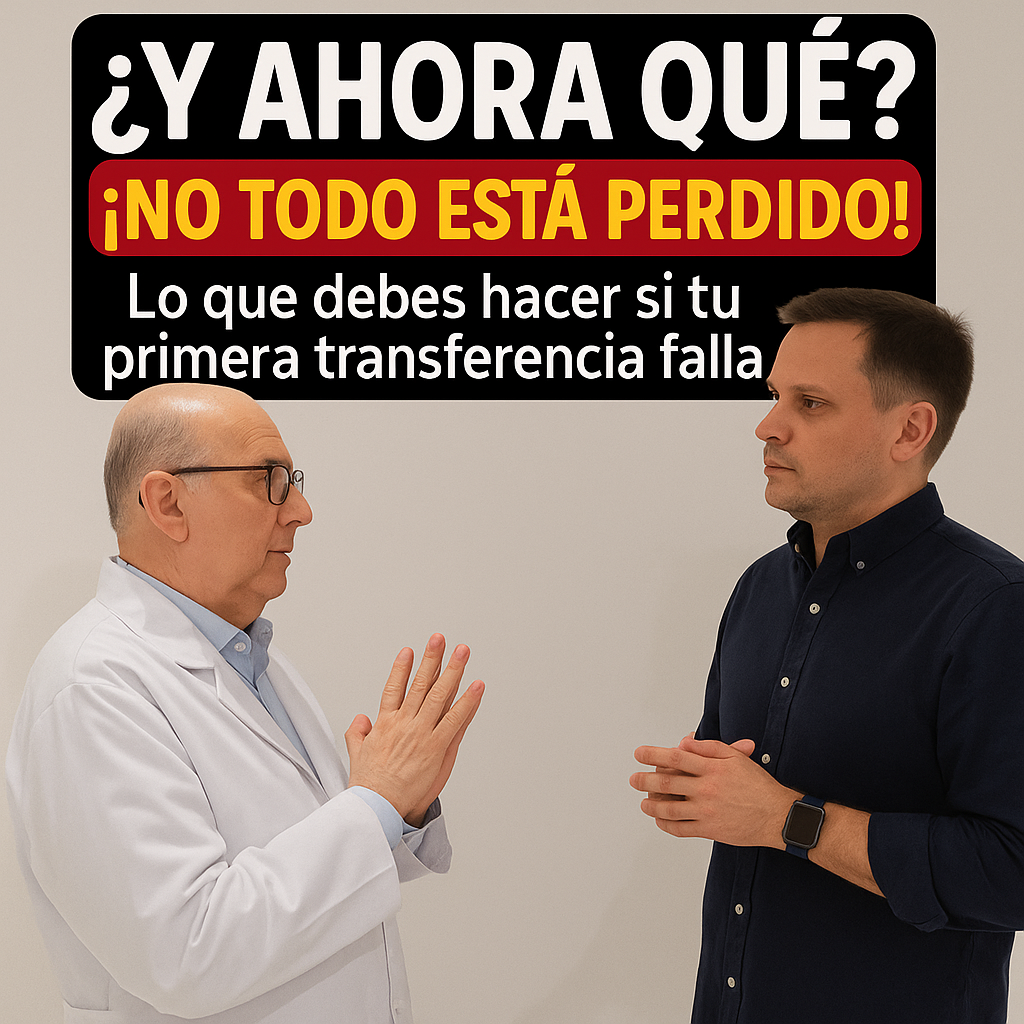




When the First Attempt Fails: Gisel's Journey and the Power of Believing Again
In the world of surrogacy, every embryo transfer is more than a medical act; it's a leap of faith, a coordinated effort between science, hope, and profound human connection. The case of Gisel, a gestational carrier in the Health Med Cali program, reminds us that surrogacy is also a journey of patience, resilience, and unwavering belief.
Gisel did not become pregnant after her first embryo transfer. While this result is clinically possible and statistically expected in some cases, it still carries deep emotional weight for both the surrogate and the intended parents. But this was not the end of the story. Supported by her own inner strength, a committed medical team, the hopeful intended parents, and the emotional care protocol of the agency, Gisel tried again. This time, the outcome was different.
Gisel was carefully selected as a gestational carrier after fulfilling all the medical, psychological, and social requirements set by Health Med Cali and its allied fertility clinic. The intended parents—an international couple dealing with infertility—had three genetically tested healthy embryos and a strong desire to build their family.
Gisel's preparation went smoothly. Her endometrial lining was ideal, her hormonal levels were stable, and she approached the process with motivation and calm. The transfer itself went flawlessly. But ten days later, the pregnancy test came back negative.
In assisted reproduction, statistics may seem cold, but they are essential for understanding expectations. According to the American Society for Reproductive Medicine (ASRM), the success rate of a single embryo transfer with genetically normal embryos (PGT-A) in healthy women ranges between 60% and 70%, depending on egg quality and uterine health.
This means there's still a 30% to 40% chance that the embryo will not implant. Even when everything looks perfect, this outcome is a known possibility. Health Med Cali shares these statistics with clarity and transparency early in the process.
As the treating physician noted:
"It’s not about failure; it's about understanding that the body and life have their own rhythms. Sometimes, it takes more than one try to witness the miracle."
At Health Med Cali, a negative pregnancy result immediately triggers the 48-hour emotional support protocol. This includes:
Delivering the result privately and compassionately by a coordinator.
A first emotional support session with the surrogate.
Acknowledging and validating emotions like sadness, guilt, frustration, and grief.
Offering a professional psychological consultation within 24–48 hours.
Providing a carefully worded message to the intended parents, avoiding blame.
Coordinating a clinical case review with the fertility team.
This structure was vital for Gisel. In her words:
"Of course I was sad. But I also felt held. They never left me alone. They reminded me that my worth wasn’t defined by a result."
For intended parents, a negative result is a silent grief. There is no physical loss, but there is an emotional rupture. Health Med Cali supported them with empathy and reminded them: they still had two healthy embryos and a path forward.
They chose to keep going—not from a place of desperation, but from a renewed trust in the process.
“We knew there were no guarantees, but we also knew we couldn’t give up. Gisel gave her all, and so did we. The only choice was to try again, with even more faith.”
One month later, following appropriate medical checks and ongoing emotional support, the second embryo transfer was scheduled. The embryo was also chromosomally normal, and the conditions were again ideal.
This time, the pregnancy test was positive.
The HCG levels rose steadily. Early ultrasounds showed proper development. And slowly, the long-awaited miracle began to unfold.
Gisel reflected:
“Now I understand why the first one didn’t work. This was the right time. This was the right embryo.”
Dr. Velásquez, the lead reproductive specialist, emphasized that even with the best conditions and healthiest embryos, the human body is not a machine:
“Even with perfect embryos, implantation is never guaranteed. The key is patience, informed hope, and surrounding the process with humanity. Teamwork is everything.”
Health Med Cali played a vital role beyond logistics. From daily emotional check-ins with Gisel, coordination between medical teams, and legal facilitation, to serving as a bridge of empathy and structure, the agency ensured:
That all financial agreements continued without delay.
That Gisel received emotional and psychological care.
That communication with the intended parents remained respectful and pressure-free.
That the bond of trust was preserved throughout the journey.
Surrogacy is not only about protocols and science; it is deeply spiritual. As Alejandra, the case coordinator, shared:
“We all learned something. To trust beyond statistics. To respect the timing of the body and of God. Sometimes the first embryo isn’t the chosen one… and that, too, is part of the miracle.”
Gisel’s story is not unique, but it is powerful. It reminds us that a negative result doesn’t define the outcome. What defines the journey is resilience, expert support, and faith in what is yet to come.
Today, Gisel is progressing steadily in her pregnancy. The intended parents follow every update with joy and gratitude. And Health Med Cali stands firm in its mission to be more than a facilitator: to be the human backbone of a process where science, love, and purpose meet.
Contrary to popular belief, Lorem Ipsum is not simply random text. It has roots in a piece of classical Latin literature from 45 BC, making it over 2000 years
Contrary to popular belief, Lorem Ipsum is not simply random text. It has roots in a piece of classical Latin literature from 45 BC, making it over 2000 years old. RichardClintock
Mike Dooley
December 23,2022 at 8:50 P.MContrary to popular belief, Lorem Ipsum is not simply random text. It has roots in a piece of classical Latin literature from 45 BC, making it over 2000 years old. RichardClintock